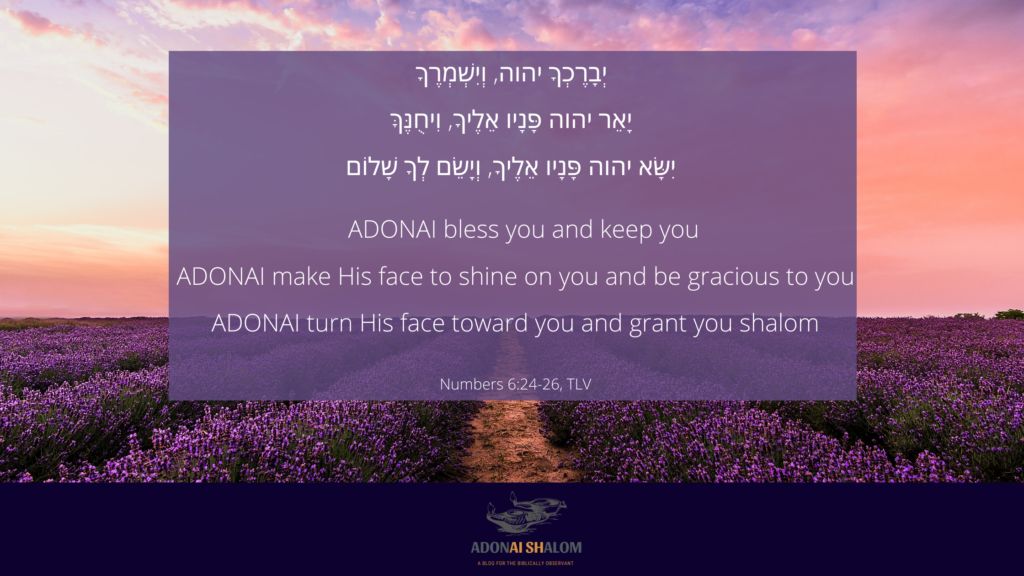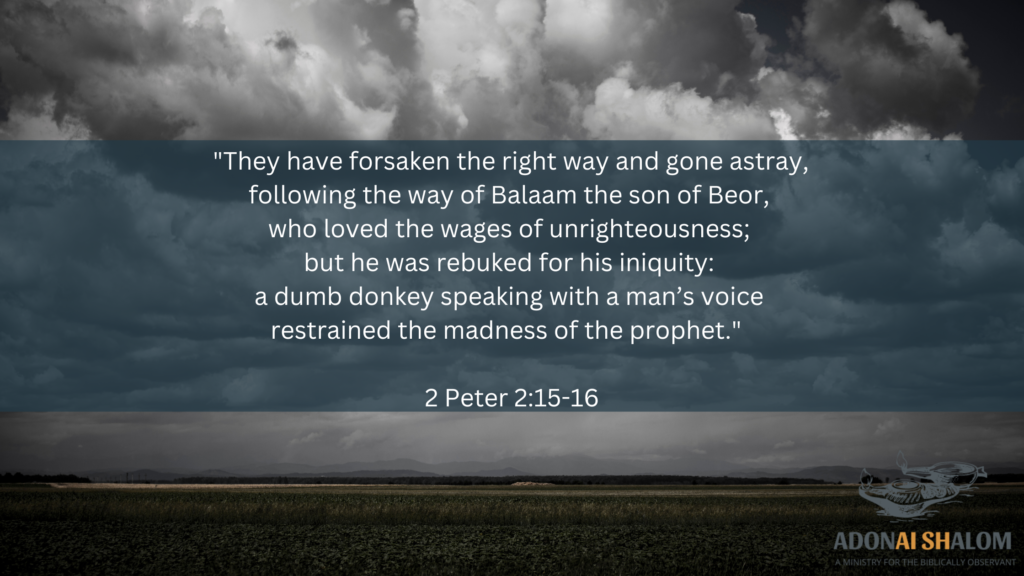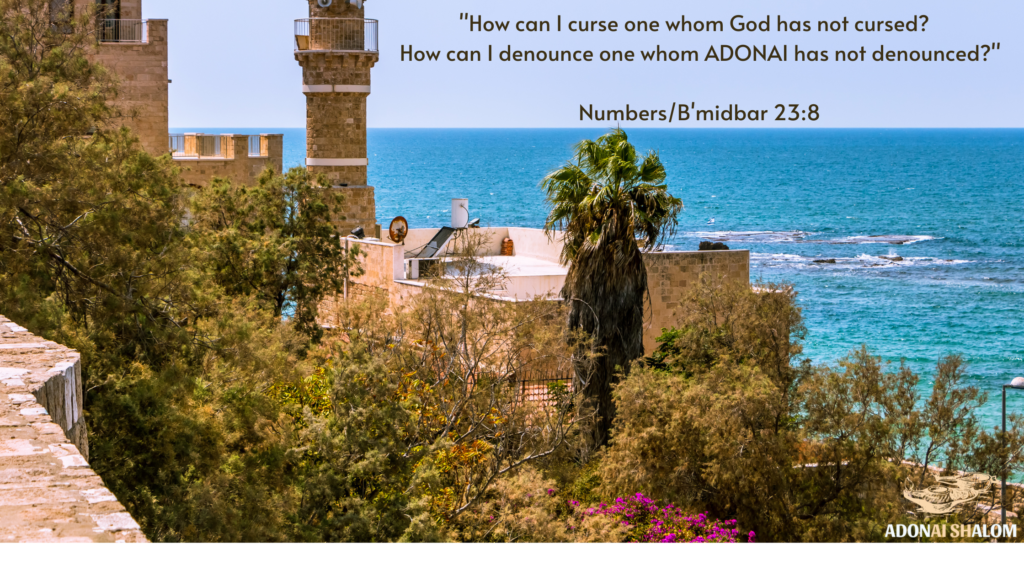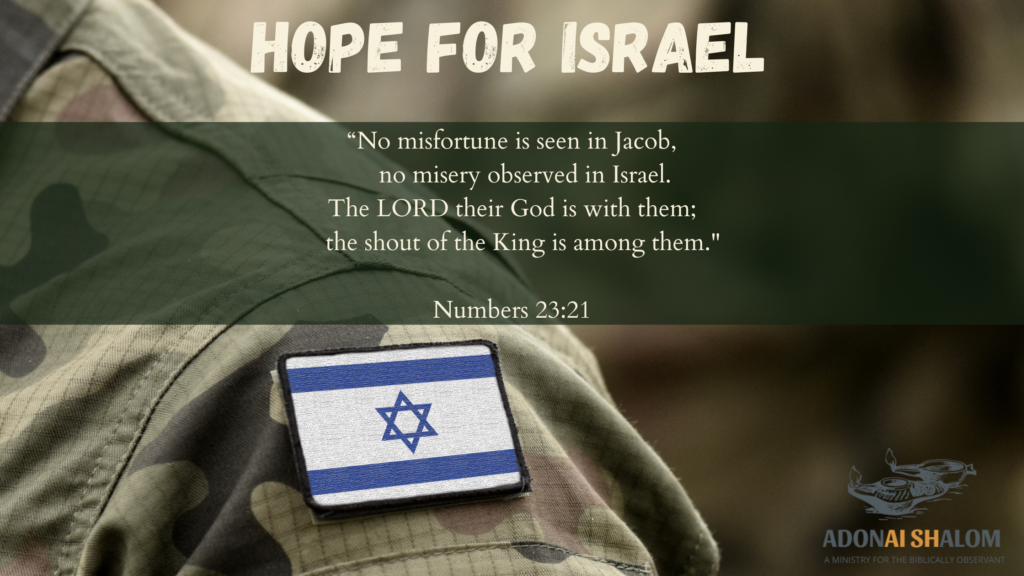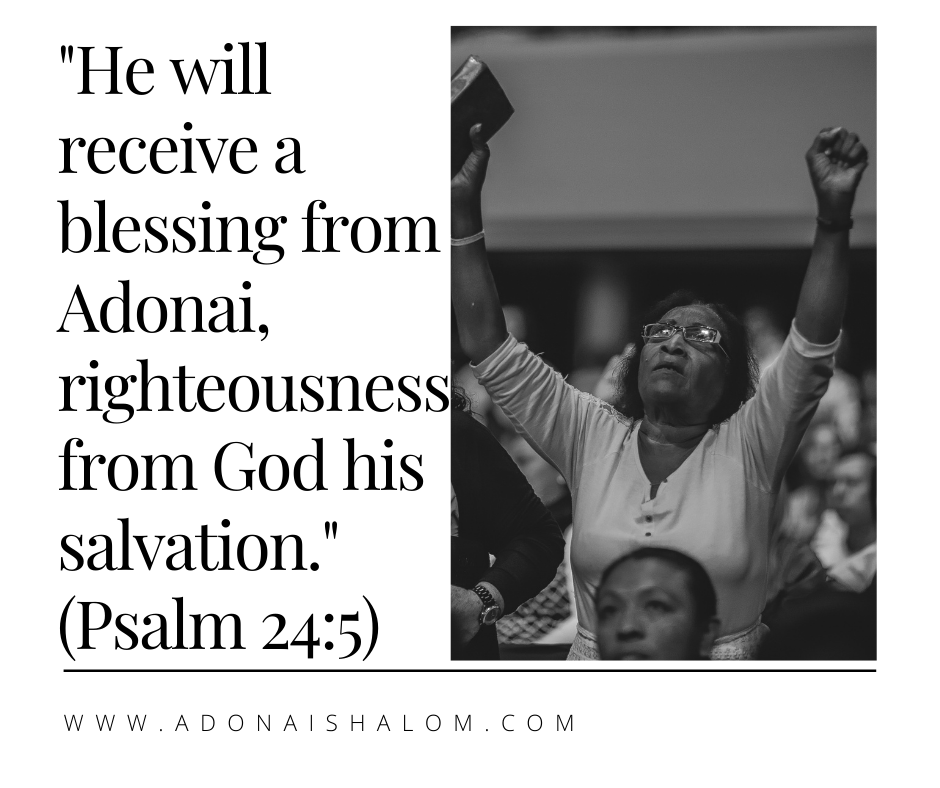Led by the One True God: Abram & his father, Terah
Parashot Noach (B‘reishit/Genesis 6:9-11) & Lech L’cha (B’reishit/Genesis 12-17) 5783 B”H
Most of us know about Abraham and Sarah, but how much do you know about Abram and Terah?

Abram’s father, Terah
Genesis 11:27-32 gives a genealogy leading up to Abram and Sarai, beginning with Terah, Abram’s father.
Abram had two brothers, Nahor and Charan (often anglicized as “Haran”), but Charan died. Charan was Lot’s father so he lived to be at least a young man, but he died before his own father Terah did.
They lived in a city called Ur, situated in Chaldean Mesopotamia.
Ur was known to be a prosperous place. The exact location is not definitive, but scholars find it reasonable to assume that Chaldea was located in the Fertile Crescent and that Ur was likely situated at the river delta where the Tigris and Euphrates rivers came together to spill into the Persian Gulf.
The city of Ur would’ve provided Terah and his family the benefits of urban life.
They would have had easy access to markets and trade opportunities as well as close proximity to fishing.
Despite all of that, Terah decided to leave it all behind. Genesis 11:31 tells us that the family left Ur with plans to reach Canaan.
Terah took his son, Abram, his daughter-in-law, Sarai, as well as Lot (his grandson) to Canaan. Scripture does not tell us why Nahor stayed behind nor why Terah decided to leave Ur.
Why Canaan?
If Terah had grown tired of the riotous idolatry rampant in the city of Ur, Canaan wouldn’t be a good place for relocation: Canaan was well-known for their plethora of gods.
You will find that sometimes Scripture leaves us with more questions than answers.
Was Terah a spiritual (albeit pagan) person, believing that the Canaanite gods could heal his broken heart after losing his son Charan?
Or similarly, was mourning the death of his son too unbearable – with all the memories associated with life in Ur – that Terah was simply seeking to move away, unconcerned with the Canaanite deities, just content to get away?
I don’t think it is unreasonable to believe that God Himself put it in Terah’s heart to leave Ur, preparing for the day when He would promise blessing to Terah’s son, Abram.
Regardless of the reason, Terah set out for his new life in Canaan.
Terah settled in Charan
Terah reached a place that the Bible calls, “Charan,” and stayed there.
So once again, we have more questions than answers:
Did Terah name this desert place, “Charan,” in honor of his son?
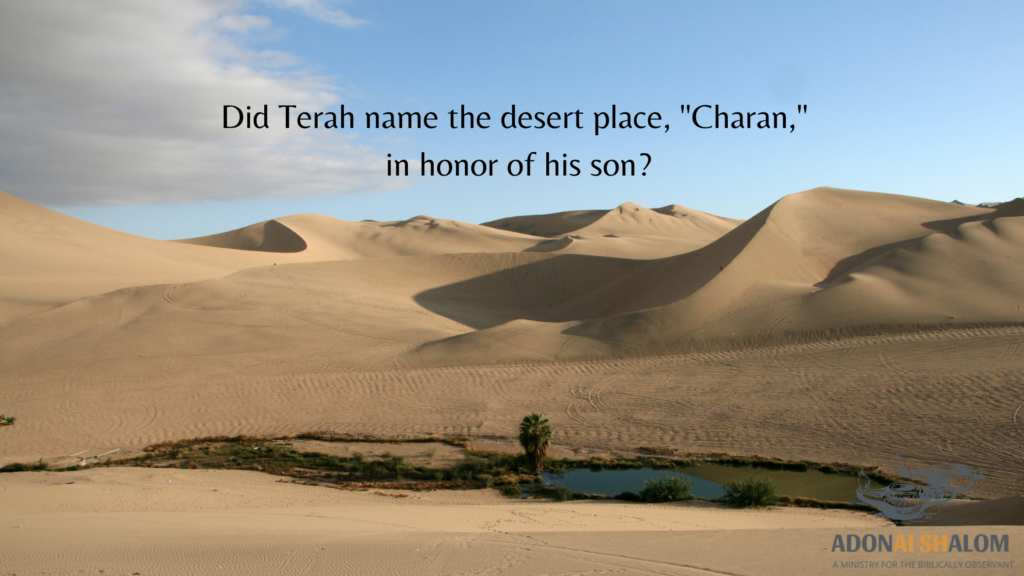
Was this place known as “Charan” before he got there, and therefore felt an affinity to it?
Whatever the reason, Terah stayed there and later died there, never making it to Canaan.
Did grief interfere?
Mourning a loss can be debilitating, and if we are not careful to seek the LORD as we mourn, our grief can begin to interfere with our ability to move forward.
We do not necessarily need to move “on” as though we will forget our loved one.
But we do need to continue taking steps in this life, walking . . . even if just baby steps, to move forward into the plan and calling that God has for us, despite any of our difficult circumstances and sorrows.
I heard a rather harsh interpretation of this passage once. The preacher said Terah stopped at “good enough”: that Terah never got to the Promised Land because he lacked vision.
Some then would argue Terah not only settled in Charan, he settled for Charan.
This could be the case.
We all know people who seemingly cannot conceive of anything more than what they have already seen or experienced; people who are limited in their ambitions and dreams. Proverbs 29:18 rightly warns, “Where there is no vision, the people perish…”
But I am not convinced that Terah was unambitious or lazy.
Sometimes grief can take on that appearance.
Given that Terah was 205 years old when he died, maybe he had some age-related health issues and didn’t feel like journeying all the way to Canaan.
The place called Charan was, in a sense, “good enough” for Terah. It was just that – a good place of solace, far from the bustling noise of Ur. A good place to heal. A good place to emotionally move forward.
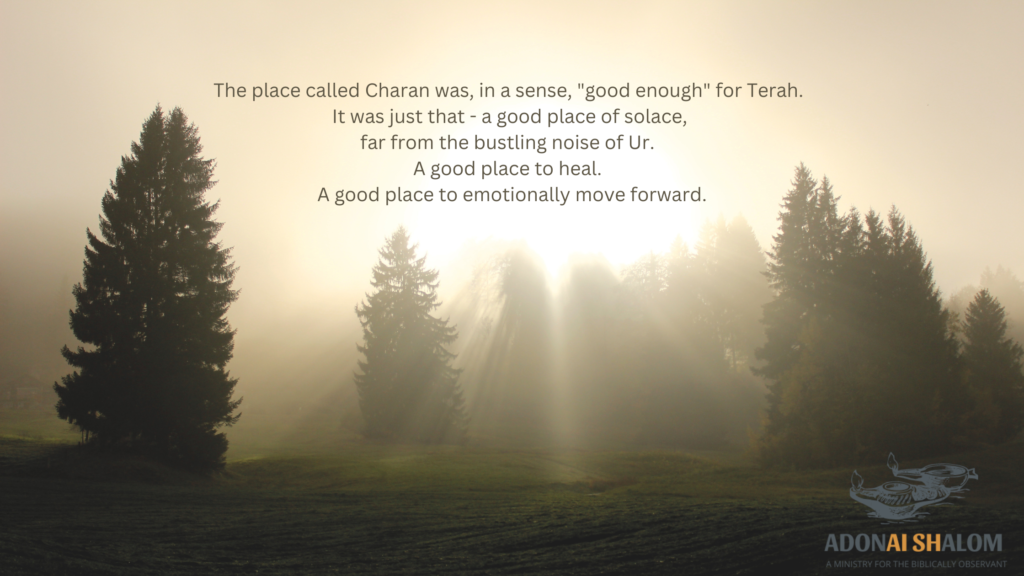
Scripture does not record a divine mandate given to Terah. Could it be that God was leading Terah to Canaan, just as He would lead Abram there? We don’t know, but it would seem that if that were the case, Scripture would’ve recorded it.
What we do know is that Terah’s action in leaving Ur paved the way for future generations to live in blessing.
In that quiet, remote place, Terah’s son, Abram, was able to hear the voice of YHVH clearly.
Abram is called by the One, True God
If you look carefully at Genesis 12:1, you will notice the use of the tetragrammaton (the Name of God: YHVH). Genesis 12:1 says, “Now the LORD had said to Abram:”
The reason, “LORD” is in all caps there is because in the Hebrew manuscript is found the most Holy Name of God: YHVH.
Why doesn’t the text read, “Now God had said to Abram . . .” ?
Well, Scripture was not put together haphazardly. It was inspired by God Himself (2 Timothy 3:16), so it is orderly and cohesive. Everything you read in Scripture is there purposely. Purposefully.
So we should believe it is significant that YHVH makes Himself known to Abram; and it would seem to make sense that the reason the Divine Name is written in this verse is to make very clear that the God who was speaking to Abram is the One, True God rather than one of the Canaanite gods:
“For the LORD is the great God, and the great King above all gods.” Psalm 95:3
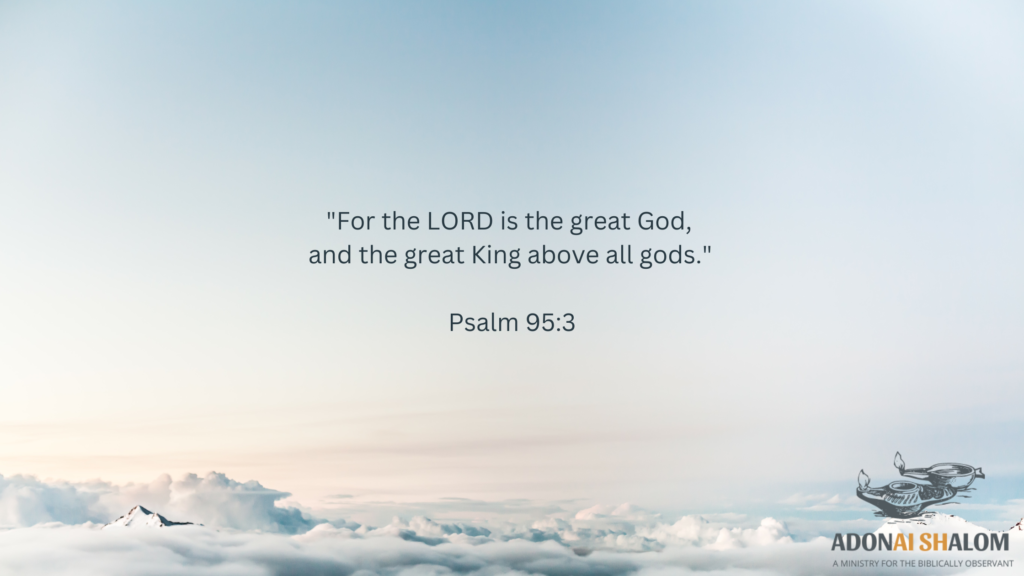
“For You, LORD, are Most High above all the earth; You are exalted far above all gods.” Psalm 97:9
The LORD’s Promises to Abram
“Now the LORD had said to Abram:
‘Get out of your country,
From your family
And from your father’s house,
To a land that I will show you.
I will make you a great nation;
I will bless you
And make your name great;
And you shall be a blessing.
I will bless those who bless you,
And I will curse him who curses you;
And in you all the families of the earth shall be blessed.‘”
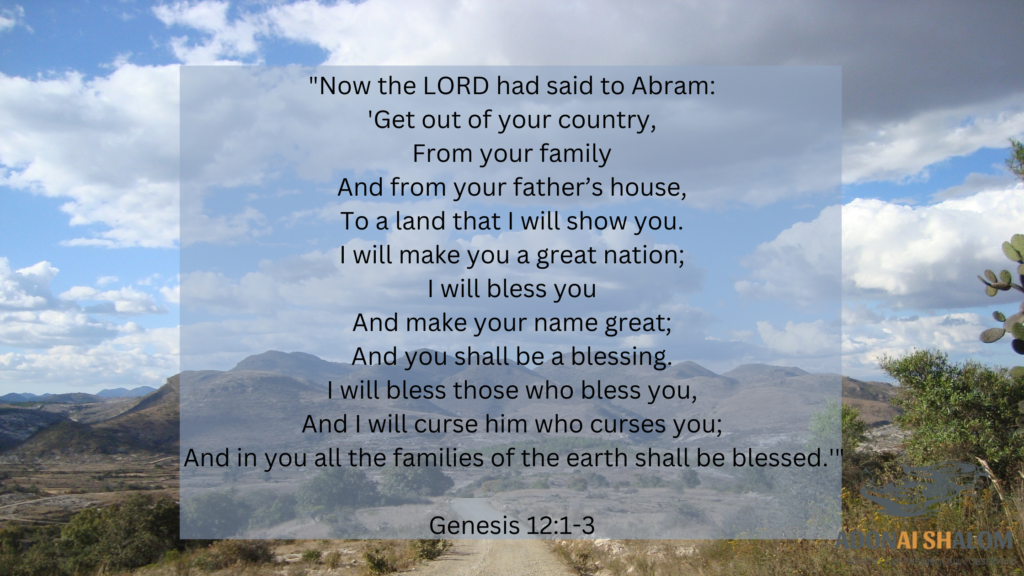
This passage contains a 7-point covenant if you look closely.
God promises to Abram:
- “I will make you a great nation” (Genesis 12:2)
- “I will bless you” (Genesis 12:2)
- “I will make your name great” (Genesis 12:2)
- “You shall be a blessing” (Genesis 12:2)
- “I will bless those who bless you” (Genesis 12:3)
- “I will curse those who curse you” (Genesis 12:3)
- “In you all the families of the earth shall be blessed” (Genesis 12:3)
7 is the Biblical number for perfection or completeness. Messiah Yeshua (Jesus Christ) had not yet come to earth, so how can this be a perfect covenant?
Because the Author is Perfect and His Promises are Perfect!
What was required of Abram?
The promises required much of Abram, if you consider it.
He had to leave his country and his clan, and even his father’s house, meaning he was to give up his leadership role as leading the family. Abram would’ve likely wrestled with the feeling that he was abandoning his responsibilities and obligations as the leader of his family’s group now that his father was deceased.
Leaving family behind was really not something that was done in those days!
But when God is going to bless you, He requires that you’re all in.
God required Abram to leave the life he knew.
The Bible records Abram acting in obedience, departing Haran with Sarai and Lot (Genesis 12:4-5).
Interestingly enough, Abram was not required to leave his possessions behind.
Genesis 12:5 tells us Abram, Sarai, and Lot gathered all their possessions (including people they had “acquired.”)
The evangelist in me really hopes those are people they had acquired for the cause of faith. Members of a pilgrim congregation.
But realistically speaking, it is apparent these people served as slaves. When we hear that term, we tend to immediately think of American slavery, which was horrific, violent, and completely unacceptable. We must hope that Abram and Sarai did their best to treat their servants well.
God had promised to prosper Abram, so Abram was permitted to take his possessions along with him on the journey to Canaan.
Have you left your old life behind?
Abram’s calling to leave his old life behind should resonate with you if you follow the LORD.
If you have not yet made the decision to trust the LORD with all your heart for your salvation, let this be an invitation today.
Remember, Abram had grown up in Ur and had gotten married there. He was accustomed to idolatry and the worldly pleasures offered to him by the city. Chaldea was known for astrologers and fortunetellers.
Abram had willingly moved to Charan with his father, Terah. If he was old enough to remember his brother, Abram, too, probably did a lot of mourning. He was an overcomer and a pioneer.
Today’s world is so very similar.
Idolatry and witchcraft have become mainstream.
Even many churches are participating in the devil’s holiday this month.
What you and I are called to do is to be different.
The LORD asks us to bury our old lives.
Leave the past in the past.
Sometimes that does include our griefs. We need to surrender to the LORD and allow Him to heal our broken hearts.
So today, turn away – repent – of your sin, be baptized by immersion, and follow Messiah Yeshua (Jesus Christ).
Allow the LORD to enter your life and ask Him to fill you with the Holy Spirit (Ruach haKodesh) with the evidence of speaking in tongues (Acts 2:4). He will bless you and heal you, restore you, and prosper you, if you will walk in His ways. The Good News of the Gospel is for you and your family!
Be willing to leave everything behind, because if you do, you will gain eternity!
He will give you new life!
Thanks for reading today! Please share any thoughts or comments below! I love to hear from you!
